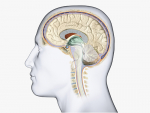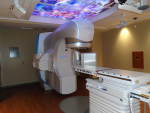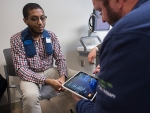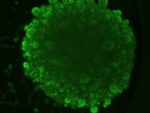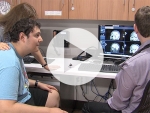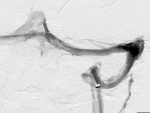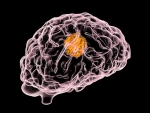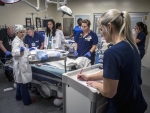Displaying items by tag: department of neurosurgery
Cole Burton came back to the UAB Trauma Center to say thanks as his rehab progresses to a possible naval career.
Investigators at the University of Alabama at Birmingham and Stanford University want to learn more about silent strokes and their role in brain health, including dementia.
Tagged under
UAB surgeons removed a rare pituitary gland tumor from a Cullman woman that had defied diagnosis for years.
This new, non-invasive way to deliver radiation has helped one Alabama man complete optometry school and launch his new career.
Tagged under
Deep brain stimulation has long been used to treat Parkinson’s disease, and was approved for use in epilepsy late in 2018.
Tagged under
Ingram was sick and no one knew the cause, until the right doctors on the right night saved his life.
Tagged under
Tagged under
UAB investigators are on the track of new technologies to better guide brain tumor therapy decisions.
Tagged under
- department of radiation oncology
- school of medicine
- department of neurosurgery
- department of cell developmental and integrative biology
- department of genetics
- department of biomedical engineering
- department of computer science
- department of biomedical informatics and data science
- oneal comprehensive cancer center
Tagged under
The goal is an early warning system to block incipient seizures for patients where medications have failed.
Tagged under
Early results for a UAB-developed viral immunotherapy to treat brain tumors in children demonstrate safety and tolerability in Phase I studies.
Tagged under
The dying cells send signals to recipient tumor cells to increase aggressiveness, motility, and resistance to radiation or chemotherapy.
Tagged under
Both dogs and people get brain tumors, and UAB researchers are studying a therapy developed for humans that might also work on dogs.
Tagged under
A business officer in the UAB Dept. of Neurosurgery becomes a patient when co-workers diagnose a blood clot in his brain.
Tagged under
Tagged under
UAB and Children’s expand non-clinical patient navigation to children with life-threatening illnesses and their families.
Tagged under
UAB is the first in the country to use novel HyperArc High-Definition Radiotherapy on brain cancer patients.
Tagged under
Reintegration into school has been a noticeably neglected area of focus in concussion research, particularly in comparison to research on return-to-play. When and how a student should be fully integrated into the classroom are just two questions UAB and Children’s of Alabama researchers are looking to answer.
Tagged under
The ProAssurance Endowed Chair for Physician Wellness at UAB will help address health issues unique to physicians as they deal with the stress and pressures associated with providing care in today’s evolving health care environment.
Tagged under
- school of medicine
- school of nursing
- uab medicine
- department of surgery
- department of radiology
- department of anesthesiology and perioperative medicine
- department of dermatology
- department of emergency medicine
- department of family and community medicine
- department of medicine
- department of neurology
- department of neurosurgery
- department of obstetrics and gynecology
- department of ophthalmology and visual sciences
- department of otolaryngology
- department of pediatrics
- department of pharmacology and toxicology
- department of physical medicine and rehabilitation
- department of radiation oncology
- department of psychiatry and behavioral neurobiology
- department of urology
- release
Pediatric neurosurgeons, oncologists and molecular imaging physicians continue to work toward better diagnoses, treatments and cures for childhood cancer.
Tagged under


